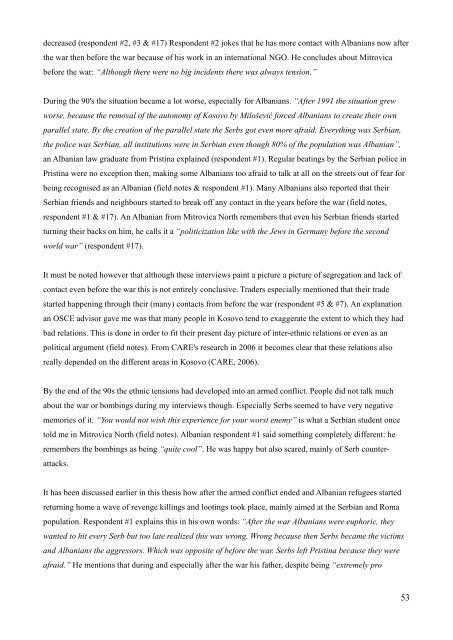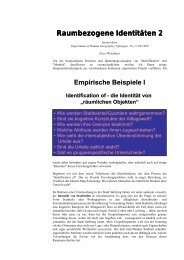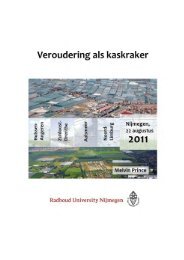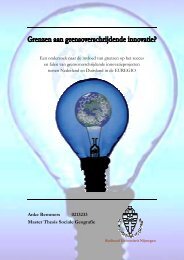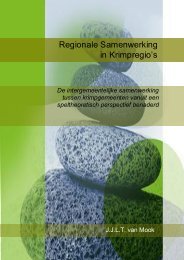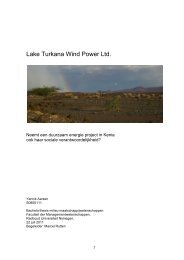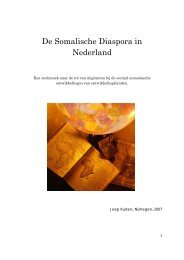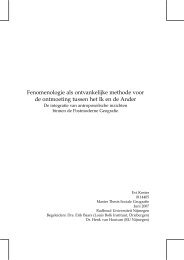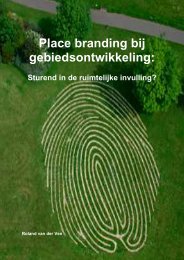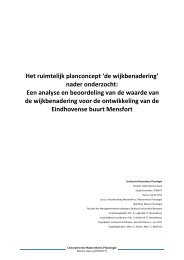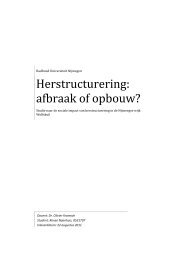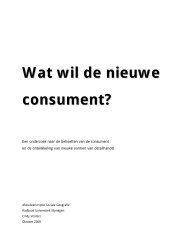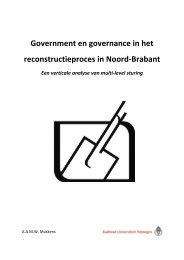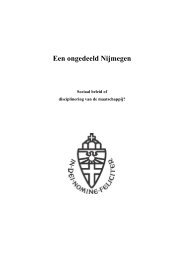Trading with the enemy in Mitrovica, Kosovo. - RUhosting
Trading with the enemy in Mitrovica, Kosovo. - RUhosting
Trading with the enemy in Mitrovica, Kosovo. - RUhosting
You also want an ePaper? Increase the reach of your titles
YUMPU automatically turns print PDFs into web optimized ePapers that Google loves.
decreased (respondent #2, #3 & #17) Respondent #2 jokes that he has more contact <strong>with</strong> Albanians now after<br />
<strong>the</strong> war <strong>the</strong>n before <strong>the</strong> war because of his work <strong>in</strong> an <strong>in</strong>ternational NGO. He concludes about <strong>Mitrovica</strong><br />
before <strong>the</strong> war: “Although <strong>the</strong>re were no big <strong>in</strong>cidents <strong>the</strong>re was always tension.”<br />
Dur<strong>in</strong>g <strong>the</strong> 90's <strong>the</strong> situation became a lot worse, especially for Albanians. “After 1991 <strong>the</strong> situation grew<br />
worse, because <strong>the</strong> removal of <strong>the</strong> autonomy of <strong>Kosovo</strong> by Milošević forced Albanians to create <strong>the</strong>ir own<br />
parallel state. By <strong>the</strong> creation of <strong>the</strong> parallel state <strong>the</strong> Serbs got even more afraid. Everyth<strong>in</strong>g was Serbian,<br />
<strong>the</strong> police was Serbian, all <strong>in</strong>stitutions were <strong>in</strong> Serbian even though 80% of <strong>the</strong> population was Albanian”,<br />
an Albanian law graduate from Prist<strong>in</strong>a expla<strong>in</strong>ed (respondent #1). Regular beat<strong>in</strong>gs by <strong>the</strong> Serbian police <strong>in</strong><br />
Prist<strong>in</strong>a were no exception <strong>the</strong>n, mak<strong>in</strong>g some Albanians too afraid to talk at all on <strong>the</strong> streets out of fear for<br />
be<strong>in</strong>g recognised as an Albanian (field notes & respondent #1). Many Albanians also reported that <strong>the</strong>ir<br />
Serbian friends and neighbours started to break off any contact <strong>in</strong> <strong>the</strong> years before <strong>the</strong> war (field notes,<br />
respondent #1 & #17). An Albanian from <strong>Mitrovica</strong> North remembers that even his Serbian friends started<br />
turn<strong>in</strong>g <strong>the</strong>ir backs on him, he calls it a “politicization like <strong>with</strong> <strong>the</strong> Jews <strong>in</strong> Germany before <strong>the</strong> second<br />
world war” (respondent #17).<br />
It must be noted however that although <strong>the</strong>se <strong>in</strong>terviews pa<strong>in</strong>t a picture a picture of segregation and lack of<br />
contact even before <strong>the</strong> war this is not entirely conclusive. Traders especially mentioned that <strong>the</strong>ir trade<br />
started happen<strong>in</strong>g through <strong>the</strong>ir (many) contacts from before <strong>the</strong> war (respondent #5 & #7). An explanation<br />
an OSCE advisor gave me was that many people <strong>in</strong> <strong>Kosovo</strong> tend to exaggerate <strong>the</strong> extent to which <strong>the</strong>y had<br />
bad relations. This is done <strong>in</strong> order to fit <strong>the</strong>ir present day picture of <strong>in</strong>ter-ethnic relations or even as an<br />
political argument (field notes). From CARE's research <strong>in</strong> 2006 it becomes clear that <strong>the</strong>se relations also<br />
really depended on <strong>the</strong> different areas <strong>in</strong> <strong>Kosovo</strong> (CARE, 2006).<br />
By <strong>the</strong> end of <strong>the</strong> 90s <strong>the</strong> ethnic tensions had developed <strong>in</strong>to an armed conflict. People did not talk much<br />
about <strong>the</strong> war or bomb<strong>in</strong>gs dur<strong>in</strong>g my <strong>in</strong>terviews though. Especially Serbs seemed to have very negative<br />
memories of it. “You would not wish this experience for your worst <strong>enemy</strong>” is what a Serbian student once<br />
told me <strong>in</strong> <strong>Mitrovica</strong> North (field notes). Albanian respondent #1 said someth<strong>in</strong>g completely different: he<br />
remembers <strong>the</strong> bomb<strong>in</strong>gs as be<strong>in</strong>g “quite cool”. He was happy but also scared, ma<strong>in</strong>ly of Serb counterattacks.<br />
It has been discussed earlier <strong>in</strong> this <strong>the</strong>sis how after <strong>the</strong> armed conflict ended and Albanian refugees started<br />
return<strong>in</strong>g home a wave of revenge kill<strong>in</strong>gs and loot<strong>in</strong>gs took place, ma<strong>in</strong>ly aimed at <strong>the</strong> Serbian and Roma<br />
population. Respondent #1 expla<strong>in</strong>s this <strong>in</strong> his own words: “After <strong>the</strong> war Albanians were euphoric, <strong>the</strong>y<br />
wanted to hit every Serb but too late realized this was wrong. Wrong because <strong>the</strong>n Serbs became <strong>the</strong> victims<br />
and Albanians <strong>the</strong> aggressors. Which was opposite of before <strong>the</strong> war. Serbs left Prist<strong>in</strong>a because <strong>the</strong>y were<br />
afraid.” He mentions that dur<strong>in</strong>g and especially after <strong>the</strong> war his fa<strong>the</strong>r, despite be<strong>in</strong>g “extremely pro<br />
53


